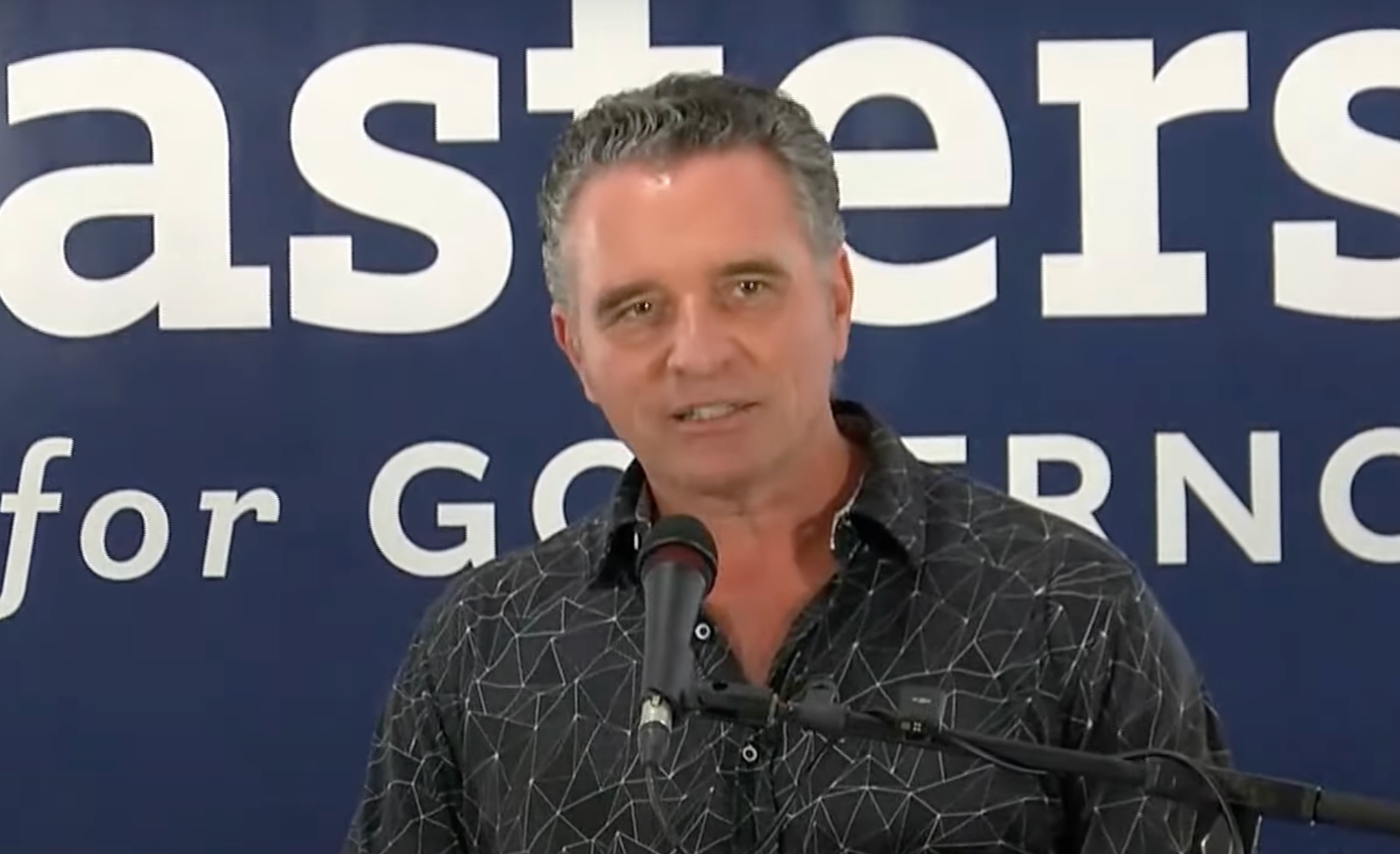
By CRISTINA JANNEY
Hays Post
Sen. President Ty Masterson, R-Andover, was in Hays Thursday on the campaign trail for governor in 2026.
Masterson stopped at a couple of locations to meet with constituents to discuss rural revitalization and also visited the Eagle Media Center to speak with the Hays Post.
Masterson began with property taxes. The state removed a state assessment for institutional buildings. That cut about $90 million in taxes.
"Now it is about how the system is put together," he said. "It's going to take a constitutional amendment to change the way we assess to be able to cap the increases to make sure people can sustain it."
"We've seen double-digit increases multiple years in a row," he said.
He said he is also a proponent of elected appraisers because property taxes tend to be lower in communities with appraisers who have more accountability.
Education funding
Hays school district officials have lobbied for more state funding for special education. Hays USD 489 saw a cost increase of almost $822,000 for special education for the 2025-26 school year.
The state is not paying the percentage required by state statute, which means the balances for those services must come from schools' general funds.
Masterson noted the federal government is also not paying its share toward special education.
The state added $10 million more for special education for the coming year, but that has not bridged the funding gap.
Masterson mentioned the Gannon and other lawsuits regarding state education funding.
"We have been dumping more and more funding into the system," he said, "and in 2024, the courts came out that we met adequate funding."
"I don't think the issue is the volume of money. It's how it's being allocated that's the biggest issue," he said. "It's the formula that drives what gets allocated to each district."
Per-pupil funding has hurt rural districts as they have lost population, Masterson said. Block funding was proposed, but was not passed.
He expressed concerns about how at-risk funding is being allocated, citing issues discovered after state audits.
"I don't think it's about overall dollars, because overall Kansas spends more per pupil than the surrounding states, and we are not getting an outcome that matches that investment," Masterson said.
Water
"There's conservation and property rights. There's a balance between the two. I do think those ultimate solutions need to have a local focus. I have heard Hays has done an incredible job on conservation."
Masterson said he was not aware of the R9 Ranch project, but asked Rep. Barb Wasinger, R-Hays, questions about the project.
He said money should be allocated to water projects based on need and not population.
Public safety
Masterson cited the Mexican border and drugs as sources of violence in the state.
He expressed concerns about the increase in no cash bail.
"People commit a violent crime and just get out on their signature," Masterson said.
Masterson cited a cash bail case out of Johnson County in which a man out on bail after discharging a firearm in a hospital stabbed a manager of a barbecue restaurant.
"We've got to make sure we keep violent people incarcerated," he said.
He said funding should also be prioritized for law enforcement, so communities can have a sufficient number of officers and state highway patrol troopers.
Judicial selection
Although judicial selection is not directly an issue in the governor's race, it will come up as a ballot question in 2026.
"We have the least democratic, most secretive way of appointing our Supreme Court justices. It is controlled by five lawyers," Masterson said.
He said it was not a merit-based system and did not reflect the population of Kansas. He said the Kansas Supreme Court justices should be elected.
Mental health
Masterson discussed the issues with staffing the state mental hospital in Larned due to the rural community where the facility is located.
The state's costs to pay traveling medical staff for the facility have significantly increased.
"We used to spend $10 million on contract nursing. It was $40 million [last year]. That's not sustainable," he said. "There's going to be some hard decisions to be made. We have to move that responsibility to somewhere we have more people to work."
SNAP and Medicaid
Masterson said he was concerned about the error rate on the Supplemental Nutrition Assistance Program, which is also known as SNAP or formally known as food stamps.
"It's not just that we are giving the benefit to people who aren't eligible for it, but also processing. There are people who aren't getting processed that are eligible for it and not getting the benefit."
He added, "It's important how a law is implemented and enforced."
In the last budget cycle, Masterson said the Legislature made some increases in Medicaid reimbursements.
He said he did not foresee any expansion of Medicaid.
"Expansion has proven to displace people who are disabled, frail and elderly, low-income mothers and children because you put all these able-bodied people into the system. You have a fixed number of Medicaid providers. It's not saving rural hospitals.
"You don't have to guess the results of Medicaid expansion. You can see it in the states that have expanded, and I think Kansas has proven it made the right decision by not having expanded Medicaid."






